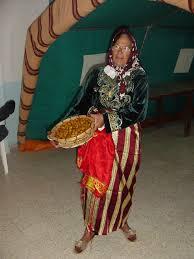Préservation de l'agro-biodiversité en Tunisie: l'équipe MedSNAIL de l'Université de Sfax formée à l'identification des produits agroalimentaires locaux de valeur

Ce contenu est disponible uniquement en anglais.
MedSNAIL project starts building capacities among partners to properly identify local communities of producers, products, and local leaders on which to pilot the project in each territory involved.
The University of Sfax, a partner in the MedSNAIL project, participated at a bilateral training meeting with the technical teams of Slow Food Foundation. This training aims to set the guidelines for the mapping of products and producers in the chosen pilot areas.
During this training, a methodology detailing the technical selection of the local producers in Tunisia that will be part of the project, was discussed. This methodology aims to empower local actors (farmers, producers, food transformer…) and to contribute to a more socially and environmentally sustainable rural development.
The work will be focused on the territory of Sfax and especially in the archipelago of Kerkennah, remarkably rich with many rare or endangered endemic animal and plant species. Kerkennah benthos seems relatively original compared to other regions of the Mediterranean Sea. This specificity is due to the presence of rare and endemic species and species threatened with extinction. In the land environment, the floristic inventory of the Kerkennah Islands shows special plant associations spontaneously growing. MedSNAIL project attempts to protect the genetic diversity of species in the territory to save biological organisms of the archipelago such as date palm.
In addition to Sfax territory, the work will take place in the Sahel region. The northern Mediterranean coast of the Sahel is formed of forest occupied with diversified medicinal and aromatic original plants. This coast also contains large fish biodiversity and a macro-faunistic community. Whitin Medsanil we will intent to find new original product fitting with the MedSlow Label
The geographical and biological features of these two territories give to crops and traditional food a typical aspect. For this reason, these products are worth protection and conservation.
From the literature review, related to Tunisian territories, some categories of plants, animal breeds, and traditional products are identified. MedSNAIL is looking forward to identifying natives and indigenous products having a strong connection with the territory, culture, and history.
During this training, the trainers also explained the methods to select best practices to establish a framework sustainably to establish a product full chain. Such methods establishing connections between producers, products, and pilot territory may help local communities to save and preserve local agro-food products (varieties, breeds, processed food products).
The project has a total budget of 2.028.807,74€ and is funded by the EU under the ENI CBC Med Programme by 90% (1.825.926,97 €), it has a three-year duration and aims to foster socially and environmentally sustainable development of agro-food SMEs by valorizing traditional Euro-Mediterranean products according to a “slow” approach and short-chain principles.







